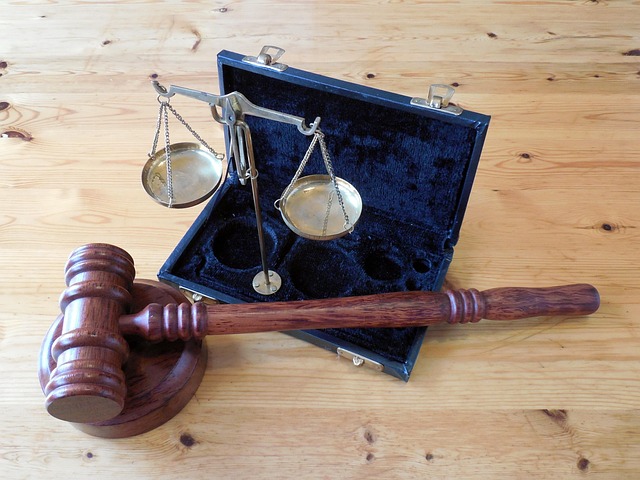RF Regulatory Agencies oversee RF spectrum usage, enforcing laws on licensing, allocation, and compliance. Investigations start from complaints or routine checks, leading to potential criminal sentences that can be appealed. Legal representation is crucial for appealing decisions, navigating complexities of RF laws, and mitigating penalties for white-collar crimes. Skilled attorneys defend against allegations, challenging evidence and agency methodology for fair outcomes, especially in cases involving philanthropic or political communities. Effective legal help protects rights and maintains regulatory integrity, focusing on successfully appealing criminal sentence decisions.
“RF Regulatory Agency Investigations: Navigating Compliance and Appeals
This comprehensive guide explores the intricate world of RF (Radio Frequency) regulatory bodies, their role in ensuring technological safety, and the implications for individuals and entities under scrutiny. We demystify the process from jurisdiction determination to appealing a criminal sentence decision. Learn what actions trigger investigations, discover effective defense strategies, and understand post-investigation penalties. By understanding these key aspects, stakeholders can proactively manage RF compliance risks.”
- Understanding RF Regulatory Agency Jurisdiction
- What Triggers an Investigation?
- The Appeal Process: Step-by-Step Guide
- Legal Representations and Defense Strategies
- Post-Investigation Penalties and Consequences
Understanding RF Regulatory Agency Jurisdiction

RF Regulatory Agencies possess a broad jurisdiction over the radio frequency (RF) spectrum and its usage. Their role is to ensure fair access, prevent interference, and promote efficient use of RF resources. This involves regulating various aspects, from licensing and allocation to monitoring and enforcing compliance with established standards. Understanding these regulatory bodies’ powers and their enforcement mechanisms is crucial for entities operating in the RF space, especially when facing potential violations or investigations.
These agencies have the authority to investigate complaints, conduct unannounced inspections, and issue warnings or penalties for non-compliance. In high-stakes cases, particularly involving unprecedented track records of misconduct or those with significant economic impact, appealing a criminal sentence decision may become an option. However, navigating these legal complexities requires careful strategy, as avoiding indictment is a primary concern for organizations facing RF regulatory scrutiny.
What Triggers an Investigation?

An RF Regulatory Agency Investigation is typically triggered by suspected violations of radio frequency (RF) laws and regulations. These violations can range from unauthorized transmission of signals, interference with critical communications infrastructure, to manufacturing or selling devices that do not comply with set standards. Complaints from individuals or organizations affected by these violations, as well as routine oversight checks, serve as primary catalysts for initiating an investigation. Across the country, regulatory agencies are tasked with ensuring compliance across all stages of the investigative and enforcement process, which can include appealing a criminal sentence decision if necessary.
In terms of specific triggers, significant incidents like large-scale signal disruptions or widespread non-compliance with RF standards can prompt immediate investigations. Additionally, agencies may target industries known for recurrent violations or focus on emerging technologies to ensure they adhere to the latest regulations. Given the technical nature of RF laws, a general criminal defense attorney specializing in these matters often plays a crucial role in guiding clients through the investigative process and advocating for their rights during all stages of enforcement proceedings.
The Appeal Process: Step-by-Step Guide

When a criminal sentence decision is made by an RF Regulatory Agency, individuals or corporate entities have the right to appeal. The appeal process involves several crucial steps designed to ensure fairness and due process for all respective business and individual clients.
First, a written notice of appeal must be submitted within a specified timeframe, outlining the grounds for appealing the original decision. These grounds can include claims of procedural error, misinterpretation of facts, or dissatisfaction with the penalty imposed. Following this, both parties will have the opportunity to present their arguments and evidence at a hearing before an appellate body within the agency. Throughout all stages of the investigative and enforcement process, legal representation is strongly advised to ensure the best possible outcome for the appellant.
Legal Representations and Defense Strategies

In RF Regulatory Agency investigations, legal representations play a pivotal role in shaping outcomes, especially when facing white collar and economic crimes. Accused individuals or organizations have the right to defend themselves against allegations, employing strategic defense strategies tailored to their unique circumstances. These defenses can range from challenging the admissibility of evidence to questioning the agency’s methodology, ensuring a fair trial and exploring potential avenues for winning challenging defense verdicts.
The process involves navigating complex legal frameworks and regulations. Skilled counsel leverages knowledge of RF laws and regulations, along with case precedents, to build robust defenses. For instance, in cases involving philanthropic and political communities, where investigations might spark public scrutiny, a strategic defense could emphasize the benign intent behind actions, distinguishing legitimate charitable or political activities from illicit practices. Effective legal representations not only protect rights but also contribute to upholding the integrity of the regulatory process.
Post-Investigation Penalties and Consequences

After an RF Regulatory Agency (RFRA) investigation concludes, individuals or entities found guilty of non-compliance face several potential consequences. These penalties can range from monetary fines to more severe criminal charges, especially if willful violation is proven. The impact of these outcomes can be significant, affecting not only the financial standing but also the reputation of those involved.
For those facing RFRA-related legal issues, appealing a criminal sentence decision is an option worth considering. The complexity of RF regulations and the technical nature of investigations often present unique challenges for defendants. Skilled white collar defense attorneys can navigate these complexities, providing clients with winning challenging defense verdicts across the country.
RF Regulatory Agency investigations can significantly impact businesses operating in the radio frequency spectrum domain. By understanding jurisdiction, triggers, appeal processes, defense strategies, and potential consequences, entities can better navigate these regulatory hurdles. While penalties may be severe, including fines and license revocations, a well-prepared appeal through specialized legal representation offers a path to mitigate outcomes, especially when challenging a criminal sentence decision. Staying informed and proactive during investigations is key to preserving business interests in this highly regulated industry.






